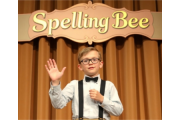Lying awake that night, Paul recalled that neither son had cried at their mother’s funeral. On the contrary: Paul himself had wept that night in front of the boys as he put his arms around them, sitting on the landing upstairs with them, revealing his own vulnerability as he confessed, to their shocked embarrassment, ‘I can’t do this without your help.’ Little Spartan that Aiden was, the only comment he had made that fateful day a year ago was one filled with his own fears as they walked home, ‘I don’t want a step-wife.’ Paul had promised he would not have one, and was to keep that promise for the next ten years, until Aiden left for Trinity College in Toronto in his brother’s footsteps.
Paul got out of bed and tiptoed to stand in their bedroom over the red metal bunk bed they shared, which they had called their spaceship. Kip lay above, arms thrown wide, Aiden curled up with his teddy bear beneath. Angels unaware. We are lost because we have lost you, Sam. Aiden cried because you could only be an absence in the front seat. He cried because you will not see him give his speech in class next week, because you will never see him graduate, or meet his fiancee, or know his children, or whatever else a serious nine-year-old thinks. And Paul recalled the paper bag full of origami paper cranes that he had found in the playroom the boys shared in the basement. Aiden had evidently made these secretly against the day of his mother’s death, in imitation of Sadako Sasaki, the Japanese girl who had believed that if she made a thousand paper cranes, her wish to live might be granted, in spite of leukemia contracted from exposure to radiation from the atomic bomb dropped on Hiroshima. He had read the story, Paul knew, in a school reader. Sadako made six hundred and fourteen cranes before she died, aged twelve.
Paul bent down to kiss both his sons. Aiden muttered in his sleep. Paul padded back to bed curiously lighter in spirit. As long as he had them, he knew, all would be well, and all manner of things would be well. Aiden never played with the bow and arrows again. As a catalyst in healing, they had served their purpose.
Ever since that moment, more than thirty years ago now, Aiden has not once mentioned his mother’s name. Some grief is too deep for words.





